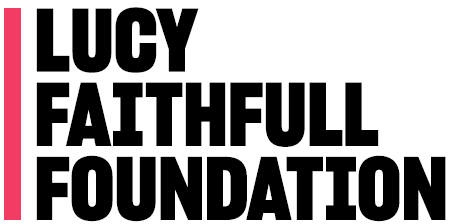'What's the point?' How our specialist programmes reclaim hope and protect children
Our work to prevent child sexual abuse means stopping it from happening in the first place, but also stopping it from happening again.
People who have offended can redirect their lives to prevent further harm, and our Inform Plus and Engage Plus programmes are designed to address the deep-rooted issues that lead to illegal online behaviour. The goal of Inform Plus is to help people stop viewing indecent images of children and Engage Plus helps stop online sexual communication with children.
Last year, we helped nearly 300 people through these programmes, a big increase from the year before. 97% of participants reported making good or maximum progress on their ability to reduce their risk of reoffending.
In this blog post, we speak to some of the experienced facilitators who run our programmes, as they delve into how they change lives, prevent reoffending and protect children from harm.
Hope and change
The facilitators play a vital role in guiding people who have offended through their journeys of self-reflection, accountability, and change. Through group work and individual sessions, these programmes provide participants with the tools to understand their behaviour, the impact it had on victims and their loved ones, and help them make positive changes that stop future offending and keep children safe from harm.
The facilitators' unwavering belief in the potential for change, coupled with their skill in creating safe, supportive environments, has a lasting impact not only on the individuals they work with but also on the wider community.
Norris, whose experience delivering group programmes as a practitioner for the probation service means he deals with this subject matter daily, said, “I believe in change. I believe that people can change.” This belief underpins every session, and the facilitators are there to help participants see that they are not defined by their past behaviours.
Learning and changing through shared experiences
While one-to-one sessions are available, wherever possible, we recommend group sessions. They play a central role in our programmes, creating a space where participants can share their experiences, confront challenging behaviours and difficult emotions, and change for the better.
“There's also just something about hearing experiences from other people,” says Rhea, our dedicated project worker, specialising in our programmes, who previously worked as a probation officer. “Having the same feelings, being stuck in the same places – hearing it from someone else who's gone through it, I think, is just so helpful for them.”
Many participants believe they are alone in their experiences until they hear others share similar stories. This realisation fosters a sense of mutual support.
We also spoke with Neia, who has a background in helping people work to overcome their addictions, and who began working with us over 7 years ago. Neia reflected on a poignant memory of a participant who initially seemed reluctant to share, describing how they gradually opened up over the course of the sessions. This personal growth is witnessed by facilitators time and time again, as participants begin to realise that they are safe to express their vulnerabilities in a supportive environment.
“It's almost like a revelation goes on in their head,” said Neia, when participants see that they are not alone and that change is possible. This collective journey creates an environment where participants not only learn from the programme but also from each other.
Creating a space where participants feel comfortable discussing their deepest fears, shame, and guilt is central to the success of these programmes. Without excusing the past behaviour, facilitators aim to build rapport, normalising participants' emotions and helping them feel less alone. Being open helps participants feel seen and heard, fostering an environment where they can begin to understand their behaviour and the processes involved, and change for the better.
In group settings, facilitators are acutely aware of the different personalities at play – some participants are more vocal, while others may take longer to contribute. It is a delicate balance to manage these dynamics, but when done successfully, it creates a safe and encouraging space for all.
“The course was immensely useful and has prevented me from finding myself in a much darker place,” explained an Inform Plus participant. “I feel that it has been the first stepping stone towards getting my life back on track.”.
Paving the way forward
The programmes cover a wide range of topics to assist and support the participants, including models of sexual offending and rehabilitation, such as the Good Lives Model; information on how the criminal justice system works; the internet and pornography; adult relationships and intimacy; disclosure, and goal setting. Everything is geared towards supporting the individual to understand their offending behaviour and preventing reoffending.
One key focus is the importance of self-care. “Those who have poor self-care tend to display more problematic behaviour,” explained Rhea.
The group sessions also include testimonies from graduates of the programmes. “We try our best to get a graduate, someone who's done the programme, been through the process, been through the system, to come and talk about their experience and answer questions,” says Ida, an assistant psychologist who has nearly 4 years of experience working with us, having started as an advisor on our Stop It Now helpline. “I think that's definitely a highlight for most of the people that participate. They always remember that and find it really helpful.”
Transforming shame into motivation
One of the most significant outcomes facilitators observe in people who have offended is the transformation of shame into motivation for change. In one session, Neia recalled how a participant, despite the difficulty of confronting his actions, turned a particularly challenging discussion about the impact of his behaviour on victims into a learning moment. He resolved to use the pain and discomfort he felt as motivation to never repeat his mistakes. This shift in mindset not only impacted him but also inspired others in the group. Facilitators consistently observe how one participant’s breakthrough can spark similar moments of self-reflection and determination in others.
At the core of our work is the belief that people can change.
Norris highlighted the importance of asking questions that participants may never have considered, helping them to understand the factors that have influenced their actions. This broader perspective can be a catalyst for change, as participants begin to see themselves, and their capacity for growth, in a new light.
Our programmes also provide participants with practical tools that address issues that led to their offending. Participants often start making changes such as improving their health, reducing unhealthy habits, or becoming more engaged in their personal relationships. These positive shifts extend far beyond the scope of the programme, affecting participants' roles as fathers, partners, and employees. The ripple effect of these changes not only benefits the individual but also their families and communities.
“There might be times where you think to yourself, ‘Oh God, what's the point?’ or ‘Why does this happen?’,” explained Norris. “And then you take a step back and think about it and look at the bigger picture – if these people can try and work through some of the issues, we can protect more children. The effects of the programmes we offer will continue and have a positive impact on them.”
Past participants of the programmes often get in touch after finishing. Lizzie, who has worked with us for over 2 years after being a prison offender manager, reflects on one such instance where feedback from one of the participants explained how surprised they were at how supportive the environment during the programme and how motivated they felt, in spite of the really difficult content. “He said he wasn't sure where he'd be if he hadn't started the programme and thanked us for our support,” said Lizzie.
“Our goal is child protection”
Ultimately, the work that facilitators do aims to protect children by helping participants understand the root causes of their behaviour and equipping them with the tools to change. Facilitators know that they are just a part of the process, and it is up to the participants to take the steps necessary for transformation. However, the role they play is crucial in guiding participants through that journey.
As Neia put it, “If what we do reduces the risk that they will return to the same behaviour, then ultimately, we are preventing more children from being victimised.”
“Just going into each session, wanting to do the absolute best, really wanting to take each individual's circumstances, really helping them as an individual rather than focusing on a label or anything else… It’s really nice seeing and hearing the feedback that comes of it because at the end of the day, our goal is child protection, isn't it?” says Lizzie.
A guide to a better future
Working in such an emotionally charged environment can take its toll on facilitators. To maintain their own well-being, they turn to various coping strategies, such as exercise, gardening, and leaning on colleagues for support. Neia shared how she dances to release pent-up energy after particularly difficult sessions, while Norris spoke of the importance of having colleagues who understand the challenges of the work. The support they receive from one another helps them stay grounded and maintain a positive outlook, even in the face of difficult subject matter.
“You might come across challenges and difficult things to hear. You know, it's not always nice conversations, but remember why you're doing it - that goal of child protection,” explains Rhea. “Child sexual abuse is preventable, not inevitable.”
Find out more
We provide a range of services to people who offend, their loved ones, children and professionals to ensure that children are safe from sexual harm.
Our anonymous Stop It Now helpline can support any adult worried about a child or young person’s sexual behaviour.
We have self-help modules for anyone concerned about their own thoughts or behaviour towards children.
Our Shore website has anonymous advice and information for teenagers worried about their own or a friend’s sexual behaviour.
Can you help us?
Want to support our work to prevent child sexual abuse? Donate now.
We want to be able to provide advice and support for all who need us. Sharing our posts and information helps us reach more people and protect more children.
Sign up to receive our emails and find us on Twitter/X, Facebook, LinkedIn, Instagram and YouTube.
Sign up for news & updates
Fill in our newsletter form hereTo support our work to protect children, donate today.
Donate today






